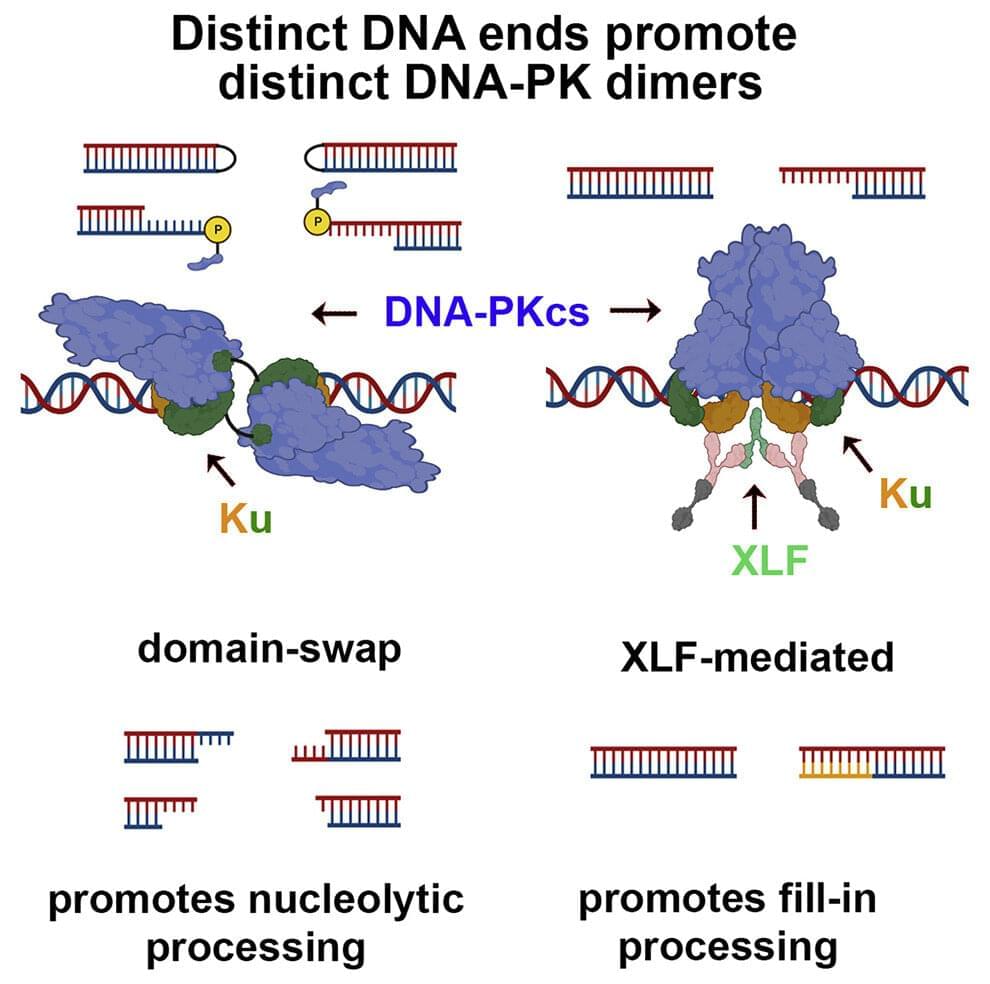An exploration of the ideas of physicist John Wheeler and how it may be that events happening in the present, fix events that happened in the past and that the whole of time in the universe is an exercise in it creating itself.
My Patreon Page:

An exploration of the ideas of physicist John Wheeler and how it may be that events happening in the present, fix events that happened in the past and that the whole of time in the universe is an exercise in it creating itself.
My Patreon Page:
The man may have acquired this very rare infection after rinsing his sinuses with tap water, the Florida Department of Health in Charlotte County said in a news release.
While health officials continue to investigate the cause of the Naegleria fowleri infection, they emphasized that it can’t be contracted from drinking tap water.
These infections only happen when contaminated water enters through the sinuses, officials said.
Poor sleep could lead to between two and seven years worth of heightened heart disease risk and even premature death, according to a new study led by researchers at the University of Sydney in collaboration with Southern Denmark University.
The study analyzed data from more than 300,000 middle-aged adults from the UK Biobank and found that different disturbances to sleep are associated with different durations of compromised cardiovascular health later in life compared to healthy sleepers.
In particular, men with clinical sleep-related breathing disorders lost nearly seven years of cardiovascular disease-free life compared to those without these conditions, and women lost over seven years. Importantly, even general poor sleep, such as insufficient sleep, insomnia complaints, snoring, going to bed late, and daytime sleepiness is associated with a loss of around two years of normal heart health in men and women.

A team of researchers from Michigan State University’s College of Veterinary Medicine has made a discovery that may have implications for therapeutic gene editing strategies, cancer diagnostics and therapies and other advancements in biotechnology.
Kathy Meek, a professor in the College of Veterinary Medicine, and collaborators at Cambridge University and the National Institutes of Health have uncovered a previously unknown aspect of how DNA double-stranded breaks are repaired.
Continue reading “DNA repair discovery could improve biotechnology” »

The novel method could form a crucial part of NASA’s plans to establish a permanent human presence on the moon.
You may not know that lunar dust poses a real problem to NASA as it aims to establish a permanent crew presence on the moon with its upcoming Artemis missions.
Continue reading “New liquid nitrogen spray could help NASA solve its lunar dust problem” »
Give at least 11 minutes to your body, and it could do wonders for you.
Cambridge University researchers propose that people can reduce their risk of early death from heart disease, cancer, and various other health problems — just by doing 11 minutes of brisk walking or any other moderate-intensity physical activity daily.
This is half the effort that National Health Service (NHS) recommended in the past to lead a long and healthy life. According to NHS, a person between 19 to 64 years of age should spend at least 150 minutes a week (about 21 hours a day) doing moderate-intensity exercise.
An increase in difficulties with gambling is linked to a heightened risk of suicide attempts among young adults, according to new research from the University of Glasgow and City, University of London.
Published in the journal, The Lancet Public Health, the study suggests that over the course of a year, young adults (aged 16–24) who experienced an increase in severity of gambling harm were 2.74 times more likely to attempt suicide than those whose gambling was unchanged.
Gambling behavior is dynamic, and the study found that any escalation in the experience of gambling harm, regardless of someone’s starting point, was linked to a heightened risk of suicidality.
A new study of 30 million people found that even small amounts of exercise could lower risk for heart disease, certain cancers and early death.
An ongoing study led by Cedars-Sinai has demonstrated that certain gut bacteria may increase the risk of Type 2 diabetes while others may provide protection against it. These are early results from a prospective study.
According to the study, which was published in the journal Diabetes, higher levels of the bacterium Coprococcus are associated with improved insulin.
Insulin is a hormone that regulates the level of glucose (sugar) in the blood. It is produced by the pancreas and released into the bloodstream when the level of glucose in the blood rises, such as after a meal. Insulin helps to transport glucose from the bloodstream into the cells, where it can be used for energy or stored for later use. Insulin also helps to regulate the metabolism of fat and protein. In individuals with diabetes, their body doesn’t produce enough insulin or doesn’t respond properly to insulin, leading to high blood sugar levels, which can lead to serious health problems if left untreated.
“Computers that run on this ‘biological hardware’ could in the next decade begin to alleviate energy-consumption demands of supercomputing.”
Johns Hopkins University researchers have outlined plans for a “bio-computer” that is highly feasible in our lifetime.
“Computing and artificial intelligence have been driving the technology revolution, but they are reaching a ceiling,” Thomas Hartung, a professor of environmental health sciences at the Johns Hopkins Bloomberg School of Public Health and Whiting School of Engineering, who is spearheading the work, said in a statement.